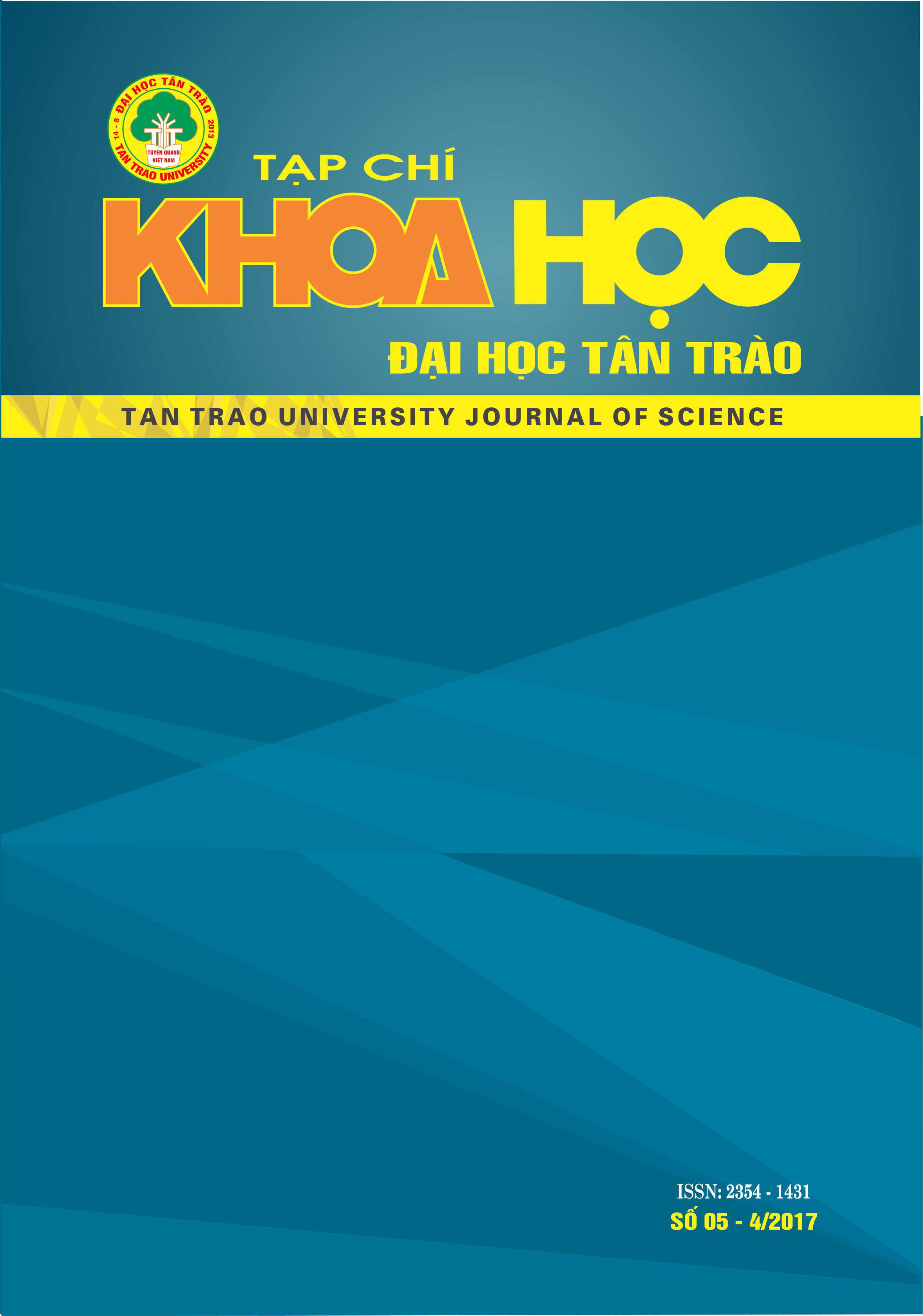Conservating ethnic minoritie languages in Vietnam before the danger of being lost
DOI:
https://doi.org/10.51453/2354-1431/2017/134Keywords:
Conserve; ethnic minority languages; policyAbstract
The preservation of the minority (ethnic minority) languages in Vietnam (VN) is now considered to be essential due to the requirements of education, culture media and many other aspects of life. But more importantly, we need to preserve and develop identified features in cultural tradition of each ethnic minorities, including their mother tongue. The warning about the danger of the death of many languages on the world does not exclude with the nowadays situation in VN. The Government 's policy in Vietnam now fully consist with the spirit and the efforts of the international community. In VN, some ethnic minority languages are used on radio and television, written books: dictionaries for translation, grammar, textbooks... Many models of language education where the ethnic minority languages are used as objects or means for teaching - learning are being practiced VN. The most important factor in bringing the vitality for ethnic minority languages is: being taught and having an active role in social life. Hope that it will bring prospect for the ethnic minority languages in VN.
Downloads
References
1. Colin Baker (2008), Những cơ sở của giáo dục song ngữ và vấn đề song ngữ , NXB Đại học quốc gia TP. Hồ Chí Minh, TP. Hồ Chí Minh;
2. Gregerson J.K. (1993), Viện Ngôn ngữ học mùa hè trong công cuộc xoá mù chữ đối với các dân tộc ở Việt Nam: cách nhìn lịch sử và phương pháp luận, Tr: Giáo dục ngôn ngữ và sự phát triển văn hoá các dân tộc thiểu số phía Nam, Nxb Khoa học Xã hội, Hà Nội;
3. Nguyễn Hữu Hoành - Nguyễn Văn Lợi - Tạ Văn Thông (2013), Ngôn ngữ, chữ viết các dân tộc thiểu số ở Việt Nam, Nxb Từ điển bách khoa, Hà Nội;
4. Hoàng Tuệ và các cộng sự (1984), Ngôn ngữ các dân tộc thiểu số Việt Nam và chính sách ngôn ngữ, Nxb Khoa học xã hội, Hà Nội;
5. Kimmo Kosonen (2004), Vai trò của ngôn ngữ trong học tập: nghiên cứu quốc tế nói về vấn đề này như thế nào? Kỉ yếu Hội nghị quốc gia: Chính sách, chiến lược sử dụng và dạy học tiếng dân tộc, tiếng Việt cho các DTTS, Hà Nội;
6. Phạm Quỳnh (2007), Tiểu luận(viết bằng tiếng Pháp trong thời gian 1922 - 1932), Nxb Tri thức, Hà Nội;
7. Tạ Văn Thông (1993), Mối quan hệ giữa chữ và tiếng các dân tộc thiểu số với chữ và tiếng Việt, Tr: Những vấn đề chính sách ngôn ngữ ở Việt Nam, Nxb Khoa học xã hội, Hà Nội;
8. Tổ chức Giáo dục, Khoa học và Văn hóa của Liên Hợp Quốc UNESCO Băng Cốc (2007), Tài liệu hướng dẫn Phát triển Chương trình Xóa mù chữ và Giáo dục cho người lớn tại cộng đồng ngôn ngữ thiểu số, Nxb Giao thông Vận tải, Hà Nội.
Downloads
Published
How to Cite
Issue
Section
License

This work is licensed under a Creative Commons Attribution-ShareAlike 4.0 International License.
All articles published in SJTTU are licensed under a Creative Commons Attribution-ShareAlike 4.0 International (CC BY-SA) license. This means anyone is free to copy, transform, or redistribute articles for any lawful purpose in any medium, provided they give appropriate attribution to the original author(s) and SJTTU, link to the license, indicate if changes were made, and redistribute any derivative work under the same license.
Copyright on articles is retained by the respective author(s), without restrictions. A non-exclusive license is granted to SJTTU to publish the article and identify itself as its original publisher, along with the commercial right to include the article in a hardcopy issue for sale to libraries and individuals.
Although the conditions of the CC BY-SA license don't apply to authors (as the copyright holder of your article, you have no restrictions on your rights), by submitting to SJTTU, authors recognize the rights of readers, and must grant any third party the right to use their article to the extent provided by the license.


